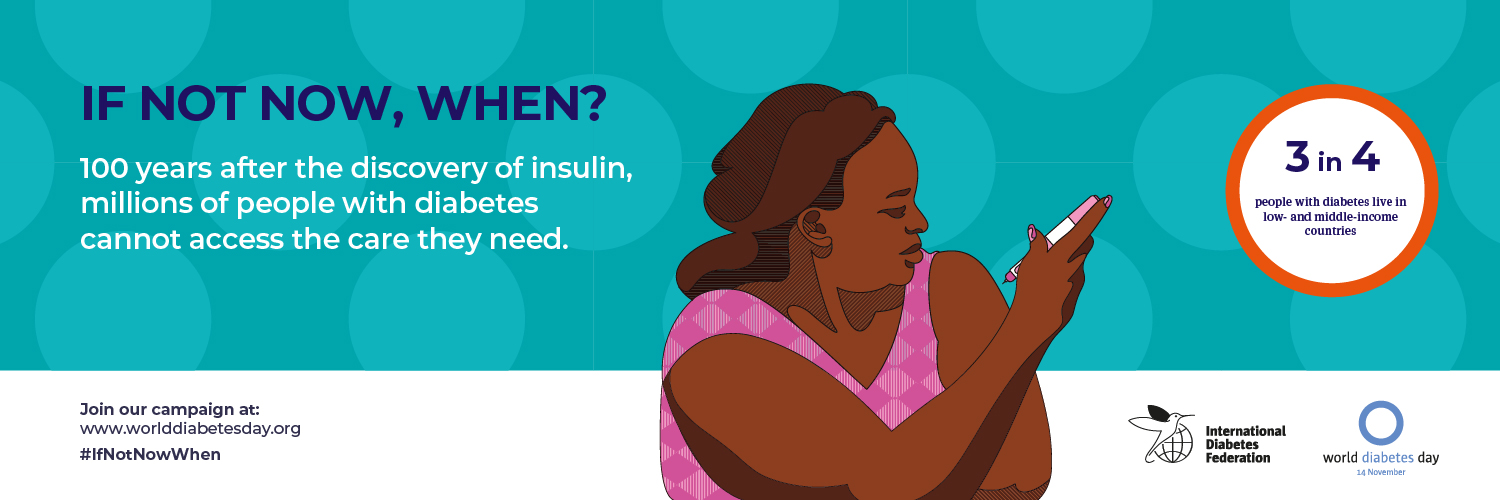November: Diabetes Month

Education to protect tomorrow is the theme of World Diabetes Day 2022, the second year of the 2021–23 focus on access to diabetes care. This year’s campaign focuses on the need for better access to quality diabetes education for health professionals and people living with diabetes.
What is diabetes?
Diabetes is a chronic disease in which the body either cannot produce insulin or cannot properly use the insulin it produces. Insulin is a hormone that controls the amount of glucose (sugar) in the blood. Diabetes leads to high blood sugar levels, which can damage organs, blood vessels and nerves. The body needs insulin to use sugar as an energy source.
At this time, researchers do not yet know how to prevent type 1 diabetes. However, type 2 diabetes can be delayed or prevented. If you have risk factors for type 2 diabetes, there are things you can do to reduce your risk of developing diabetes. Better food choices, regular exercise, and maintaining a healthy weight will help.
November 14th
The International Diabetes Federation (IDF) and the World Health Organization (WHO) started World Diabetes Day in 1991 in response to the escalating health threat posed by diabetes. It has since grown to become a globally celebrated event and an official United Nations (UN) awareness day. It is now the world’s largest diabetes awareness campaign.
Diabetes: education to protect tomorrow #EducationToProtect
One in 10 adults around the world now live with diabetes, an estimated 537 million people. Almost half do not know they have it. This is putting added strain on healthcare systems.
Healthcare professionals must know how to detect and diagnose the condition early and provide the best possible care.
People living with diabetes need access to ongoing education to understand their condition and carry out the daily self-care essential to staying healthy and avoiding complications.
IDF is committed to facilitating learning opportunities for all people impacted by diabetes. The Understanding Diabetes platform provides free online and interactive courses to help people with diabetes and their carers to understand and manage their condition.
Diabetes facts and figures
- 537 million adults (1-in-10) have diabetes
- The number of people with diabetes is expected to rise to 643 million by 2030
- 1-in-2 people with diabetes remain undiagnosed
- 4 out of 5 people with diabetes live in low and middle income countries
- Diabetes caused 6.7 million deaths in 2021
- Diabetes caused at least $966 billion in health expenditure in 2021
CSCE Diabetes Education Program
The Centre de santé communautaire de l’Estrie’s (CSCE) Diabetes Education Program allows all people with diabetes or prediabetes to learn the skills they need to take an active role in managing their condition daily. The Diabetes Education Program team is made up of a dietitian and a nurse whose mandate is to teach people with diabetes to take charge of their health and manage their disease. To do this, one group session along with personalized follow-ups are offered on topics. The program is available at our Alexandria, Bourget, Cornwall and Embrun locations.
To know more about Diabetes, visit www.worlddiabetesday.org or www.diabetes.ca.
